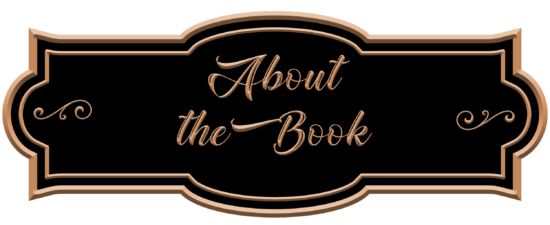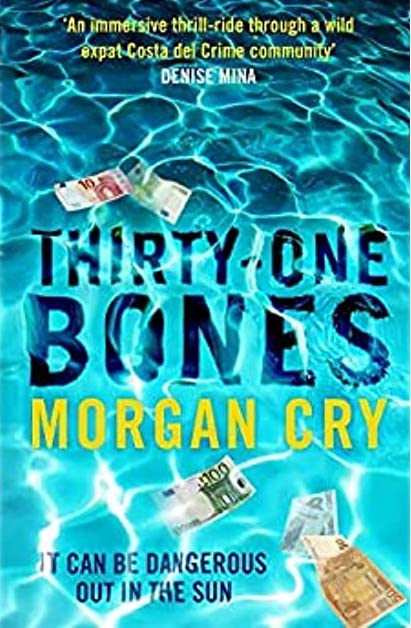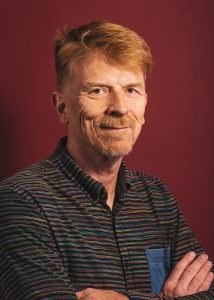Today at Novels Alive, we welcome Morgan Cry, which is the alias of Gordon Brown, a Scottish crime writer with seven novels to his name.
Welcome, Gordon!
What drives your story forward in your books the most, the characters or the plot, or do you feel they are intertwined?
I’m a big believer in characters first. That’s not to say that plot isn’t crucial but I’m not a planner when it comes to my writing. I like the freshness that arises from not knowing where the book is going to go next. As such, the characters tend to drive the plot and they also see me through those sticky moments when I’m at a loss as to what’s next. At these times I’m a fan of throwing a major curveball at the main players and seeing where this goes. I’ve always believed that if I’m surprised and delighted by where the journey is taking me then the reader will be as well.
If you were a character in one of your books, which would you be? The protagonist, mentor, villain, love interest, etc.?
I’d probably be the protagonist. I write a lot in first person, present tense from the main protagonist’s point of view. I like the pace and sparkle that this brings to my books. In doing so I can’t help but put some of myself into my main characters. That’s not to say that Daniella Coulstoun, the protagonist in my new book Thirty-One Bones, is a female version of me but she does have some of my traits. I, like most authors of fiction, often get asked if the characters in my books are based on anybody I know. My answer is that every one of them is imaginary but they do playback things that I have heard people say or seen people do. However, I’d be a bit of a screwed-up individual (if any of my friends are reading this then please hold your tongues) if I genuinely believed or did what many of my main protagonists believe or do. If I have one soft spot for other characters it tends to be the baddies. Being bad on the page is fun and plotting their comeuppance is a guilty pleasure. I’m a bit of a sucker for a returning baddy and if you read Thirty-One Bones you can play a guessing game as to who, of the slew of baddies, will return in book two.
If you had the power to make any of your books into a film, which would it be and why?
All of them. If that’s not allowed then I’d choose two. Thirty-One Bones because not only would the array of characters and storyline make for a great ‘heist’ movie but the location shoot on the Costa Blanca in Spain would give me a great excuse to spend more time there. The town in the book, El Descaro, is loosely based on Javea, a place where I’m lucky enough to own a small apartment. The town and its surrounds are gorgeous and any movie set there would glow in the sun-soaked location.
The other book I would choose to turn into a movie is the first one I ever had published. Called Falling and written under my other name, Gordon Brown, it’s a crime book set in Glasgow. I would love to see the book brought to life on the streets of my hometown. Not least because the settings and scenes are all drawn from places where I grew up.
Is there a particular genre of fiction that you have always wanted to write, but haven’t yet tackled?
I’d love to write some racy romantic fiction. Eh… no, I’m kidding. The idea of me stringing together a series of wild and passionate love scenes would not end well. If I’m honest I am a closet science fiction fan. From Larry Niven to Isaac Asimov and on through to K.W. Jeter I was an avid fan in my youth. I loved the I Robot series—essentially crime in space and my favourite book is an obscure, yet wonderful, science fiction/crime cross-over called Nightmare Blue by Gardner Doizois and George Alec Effinger. It’s about a German private investigator who teams up with a multi-limbed enslaved alien to defeat an invading hoard called the Aensa—as plotlines go it’s a bit weird—but I love it. So maybe I need to put on my silver foil hat and get typing.
If you could meet a literary character, who would you most like to meet?
I’m not sure that there is one character that stands out over the years but there are ones that interest me at the moment. For instance, I recently read Lou Berney’s November Road and one of the baddies in the book, called Barone, is a joy. Although if I did meet him he’s as likely to kill me as buy me a beer. If I can take this question and twist it a little I love meeting the authors themselves. That’s the best way to connect with the characters from books—talk to the people who created them. I’m one of the founding directors behind Bloody Scotland, Scotland’s International Crime Writing Festival and this has given me the chance to meet and talk to hundreds of authors.
As with the rest of us, you have a real life to live. So, in your most recent book, what was happening in your life and how did it influence your writing?
Thirty-One Bones was written pre-pandemic, I know it’s hard to believe that such a time ever existed, and most of it was written in Spain. The location has a huge influence on the book as does a rather nasty piece of Anglo/Spanish history. There is a phrase in the lexicon of British true-crime called the Costa Del Crime. It refers to a short but influential period of time when, due to the lack of an extradition treaty between Spain and the UK back in the late 70s/early ’80s, British criminals moved to the Costas on the west coast of Spain to thumb their noses at the UK authorities while sunning themselves and knocking back cocktails by the pool. Some nasty people hid out in Spain and the legacy still haunts the country to this day. This made for a perfect background for the book. Spain has a huge number of UK expats living there and not all of them are on the up and up. This gave me the idea about a book based amongst a group of dysfunctional expats with criminal tendencies and a main protagonist who, innocent of the world of crime, has to swim with the sharks or be eaten. While writing the book I wandered the streets, cafes, pubs, and backways of Javea, taking time out to sit down and write the next passage of the book. I like to think that in writing the book in this way that something of the magic of Spain and its people has fused itself onto the pages.
Was there something in your first edit that didn’t make it in the final copy that you sometimes wish you would have kept?
Actually, the opposite is true, I left something out of the first edit that then made it in. In the first draft, the book opened with Daniella Coulstoun, a UK citizen, landing at Alicante airport on the Costa Blanca to attend her mother’s funeral. She is about to discover that her mother, who she has been estranged from for twenty years, is a criminal and the leader of a property scam with a group of expats called the ExPatriots. When Daniella arrives, she finds out that her mother had stolen the ill-gotten gains of the scam from the ExPatriots and as far as they are concerned, Daniella is now on the hook for it. I’d planned to reveal the property scam as the story progressed but on my second run through the manuscript, I played with a new opening chapter, set in the pub that Daniella’s mum owns, called Se Busca. In it I describe the pub, the mother, and the scam, bringing the backstory to life far earlier. It’s my favourite section of the book for readings.
What do you do to prepare your mind to write? To get into the mind of your characters.
Not a lot. Until lately my only preparation was to make a cup of tea, put on some music (often trance dance or the latest electronica from around the world), and open my MacBook. This has changed a little in recent books. When I’m writing I set myself a target word count. I’m a fan of Stephen King and read his book, On Writing, many moons ago—one of the best books on the art of writing I’ve ever come across. In it, he talks of how he sets himself a word count target of around two thousand words a day. And that’s what I aim for. So when I plonk my backside on the sofa/airline seat/train seat/park bench/pub chair/patch of grass I stop typing when I hit the 2k mark. Then, the following day, I crack out another two thousand words. However, I’ve now added a little half an hour ‘session’ at the end of my writing day when I’ll go out for a walk, spin over in my head what I have just written, and come up with a rough outline of what might happen next. This has made a big difference, as each time I sit down I now have a fairly clear idea where I’m going in the short term. Not that I get there every time. Characters have a bad habit of doing their own thing and often fight my attempts to plan their future for them.
What book as a child/adolescent most influenced you as a writer?
The Fog by James Herbert. I can pinpoint the moment that this book changed my reading (and writing) life forever. I was a teenager on holiday with my family in my father’s hometown of Fraserburgh; a fishing town on the northeast shoulder of Scotland. It was a Saturday morning and I was lying on my gran’s bed reading a Hardy Boys book. I was obsessed with the Hardy Boys and when my gran said she was going to the library she asked if I wanted any books. Being a lazy git, I shouted to her to get me a Hardy Boys book, but not one I’d read. How I expected her to know what I had and hadn’t read is beyond me. As a result, instead of bringing back a Hardy Boys book, she brought back the librarian’s recommendation for a teenager; The Fog. For those that have never read The Fog it is no young adult book. The story is centred on a mist that escapes from a crack in the ground near a peaceful village in England. The fog is lethal and when it washes over people it drives them insane. Cue a book full of horror, blood lust, violence, and thrills. I’d never read the like before. I was amazed that an author was even allowed to write about such things. From that day on I left Frank and Joe Hardy behind and, it was at that moment, I wondered if I could write such stuff.
How much research went into your last book?
The fact that I have a place in Spain made a lot of research easy. After all, I could simply walk out the front door and explore. I did need some help was with Spanish police procedure. A key character in the book is a Capitán in the Guardia Civil. In the initial draft, he was an inspector in the Policia Local as I thought they, of the three ‘police forces’ in the Javea area, would be the most appropriate ones to investigate a death. Being unsure I contacted a serving Spanish police officer and author, Pere Cervantes, who disabused me of that notion and put me on the right track as to what would really happen. I also roped in the services of a local translator to ensure that the Spanish I was using was correct. However, most of the book is down to, as Hercule Poirot would say, the little grey cells.
What’s one of the most important things you’d like your readers to know about you? What defines you most as an author?
I love the creative process. I have run my own creativity training business for years and I’m driven by the joy that creative thought and action brings. I have even written a short booklet on the subject of creativity to inform people and organisations on how to improve it. Creativity is something I revel in. I am a member of a crime writing team called the Four Blokes—a stage-show where we make up a crime story live in front of the audience. I’m a DJ on a local community radio station where I can express my love of music. I adore it in all its forms but I especially delight in the spontaneity of live music. That special connection an artist can make with a crowd is magical and I’d love to think that through my freer, instinctive writing style that I can, in some way, connect in a similar manner with my readers.
What is one thing about you that may surprise your readers?
Take your pick:
-
- I was once booed by forty-nine thousand football fans.
- I sold non-alcoholic beer in the Middle East.
- I was part of a team that floated a company on the London Stock Exchange.
- I delivered pizzas in Toronto.
- I’ve compèred a two-day music festival.
- I have red hair.
Can you tell us what prompted you to write your latest release?
I was looking for a new series and I felt a need to shift focus to deliver something fresh and different. Spending time in Spain gave me the stimulus I needed and I pitched the idea of a book set amongst the ex-pat community in Spain to my agent. Thirty-One Bones was born and I suggested that I’d like to change my name as the new book was so different from my previous work. I came up with the name Morgan Cry. Partly in tribute to my dad, who was called Morgan. He’s sadly no longer with us but he is responsible in part for my interest in crime—he was a serving police officer in the Glasgow police for twenty-five years. Cry was chosen because I liked it—no other reason.
What’s next for you? What are you working on now?
I’ve already finished book two in the Daniella Coulstoun series; called Six Wounds it’s set in El Descaro and is my first real ‘whodunnit’ with a murder. I am now working on an idea that popped into my head during lockdown. Thankfully it’s not a lockdown book but a crime book set in Glasgow a good few decades ago and draws heavily on my own youth and the world I inhabited back then.
Thank you, Gordon, so much for your intriguing answers! You are truly what I would call a Renaissance Man!
Thirty-One Bones is out on May 18! Run, don’t walk, to pre-order your copy today!

Daniella Coulstoun: Book 1
Publication Date: May 18, 2021
 Carl Hiaasen meets Tartan Noir in this comic crime caper set on the sunny Costa Blanca.
Carl Hiaasen meets Tartan Noir in this comic crime caper set on the sunny Costa Blanca.
What Carl Hiaasen does for Florida and Elmore Leonard did for LA, Morgan Cry does for Spain’s sun-splashed Mediterranean coast, where British expats and certain notorious criminals go to escape-slash-retire.
When Daniella Coulstoun’s estranged mother, Effie, dies in Spain under suspicious circumstances, Daniella feels it’s her duty to fly out for the funeral. Effie was the sole owner of the seedy expat pub Se Busca, whose faithful kept her in business for twenty years. Among them is a dangerous group of misfits who confront Daniella on her arrival, claiming that Effie stole huge sums of cash from them in a multimillion-euro property scam. They want the money back, and Daniella is on the hook for it.
When a suspicious Spanish detective begins to probe Effie’s death and a London gangster hears about the missing money, Daniella faces threats on every front, including the promise of breakage to thirty-one of her precious bones. With no idea where the cash is and a seemingly impossible deadline, she has no choice but to fall back on her wits to solve the mystery in a world where she is out of depth and her very survival is at stake.


[rafflepress id=”37″]

 Gordon Brown has eight crime and thriller books published to date, along with a novella and a number of short stories.
Gordon Brown has eight crime and thriller books published to date, along with a novella and a number of short stories.
Under his new expat alias, Morgan Cry, Gordon’s latest crime thriller, Thirty-One Bones, set in Spain, is published by Polygon. Available now it will be published in the USA next year and the sequel to Thirty-One Bones, called Six Wounds, will be out in late Spring 2021.
Gordon also helped found Bloody Scotland, Scotland’s International Crime Writing Festival is a DJ on local radio (www.pulseonair.co.uk) and runs a strategic planning consultancy. He lives in Scotland and is married with two children.
In a former life, Gordon delivered pizzas in Toronto, sold non-alcoholic beer in the Middle East, launched a creativity training business, floated a high tech company on the London Stock Exchange, compered the main stage at a two-day music festival, and was once booed by 49,000 people while on the pitch at a major football Cup Final.
















